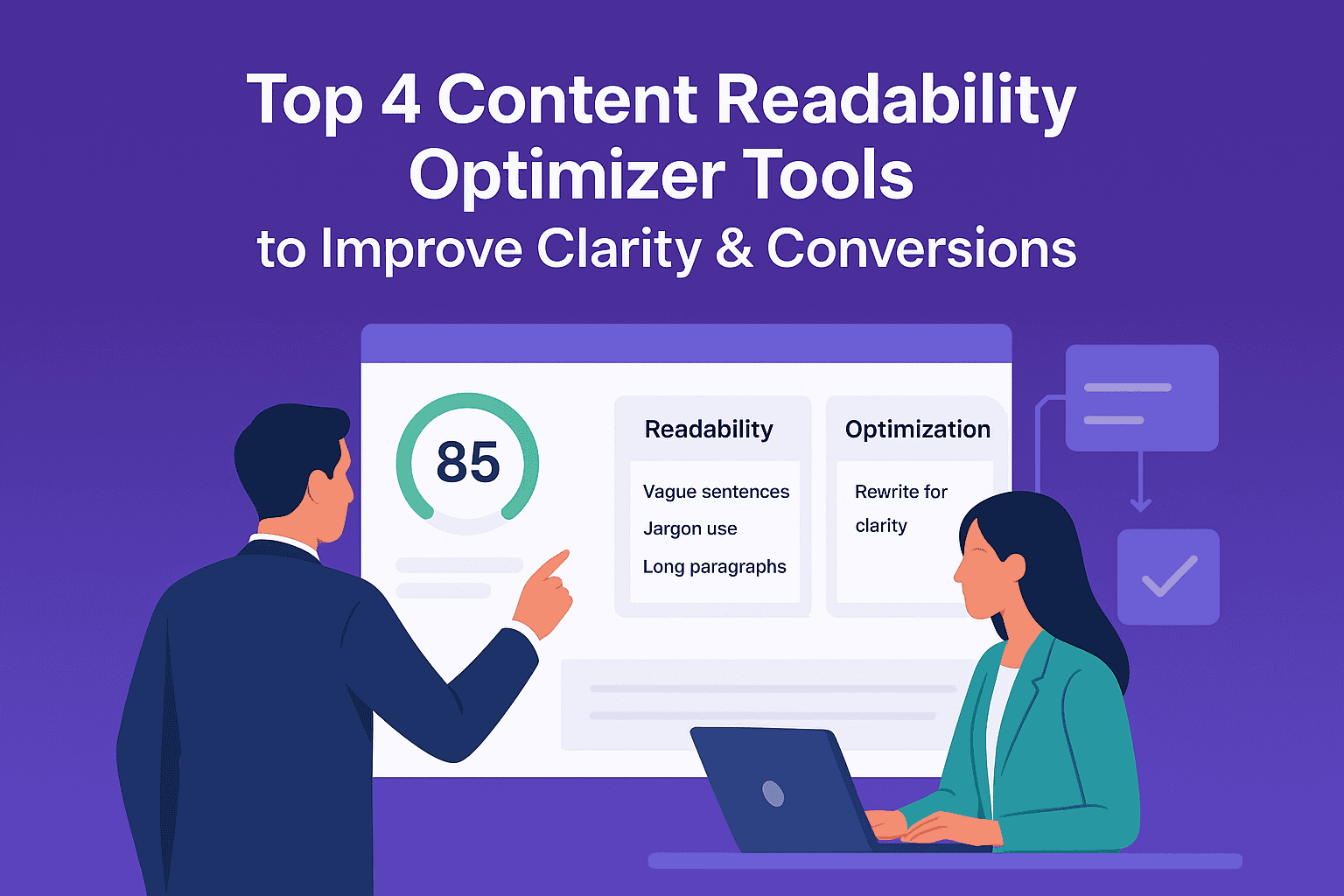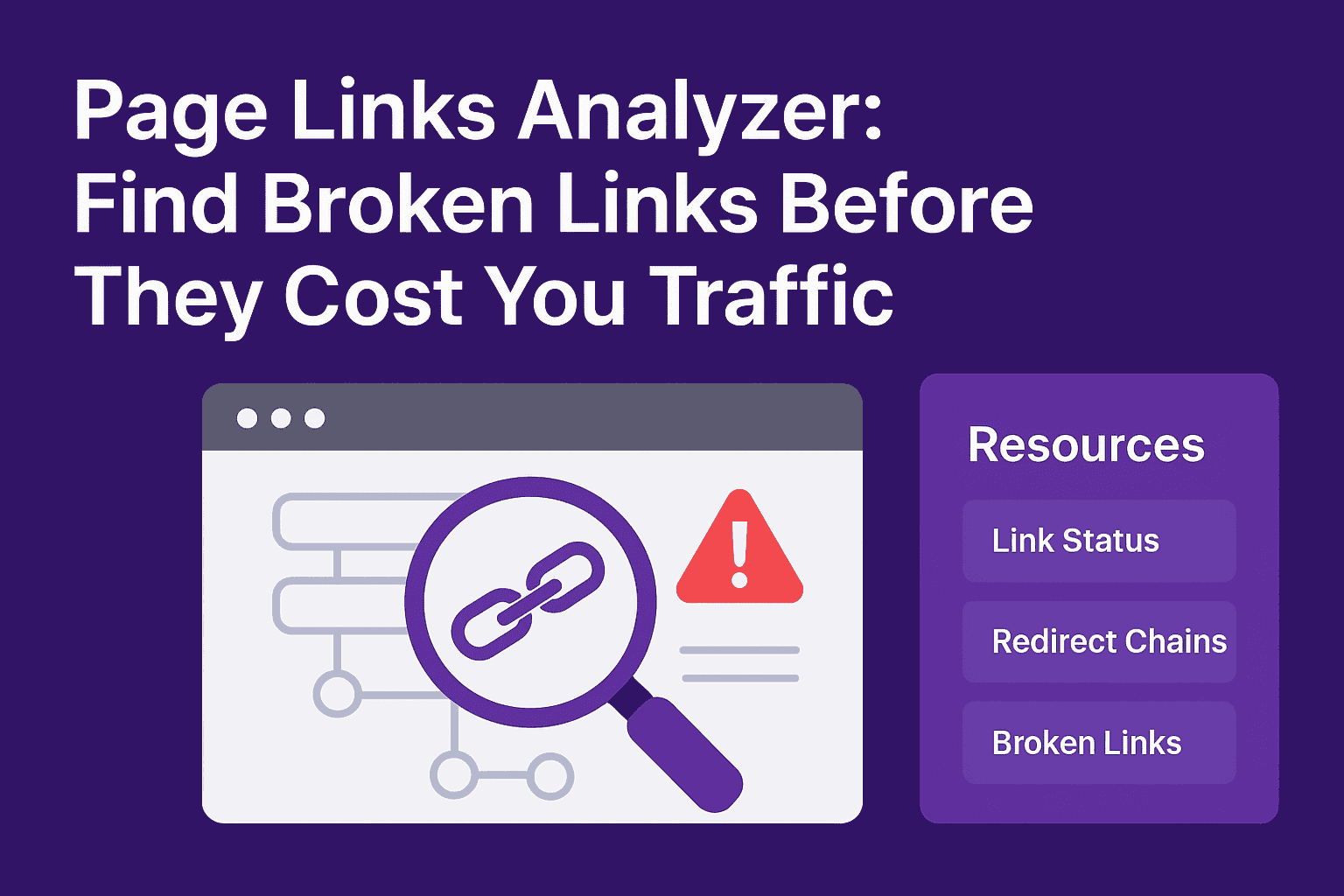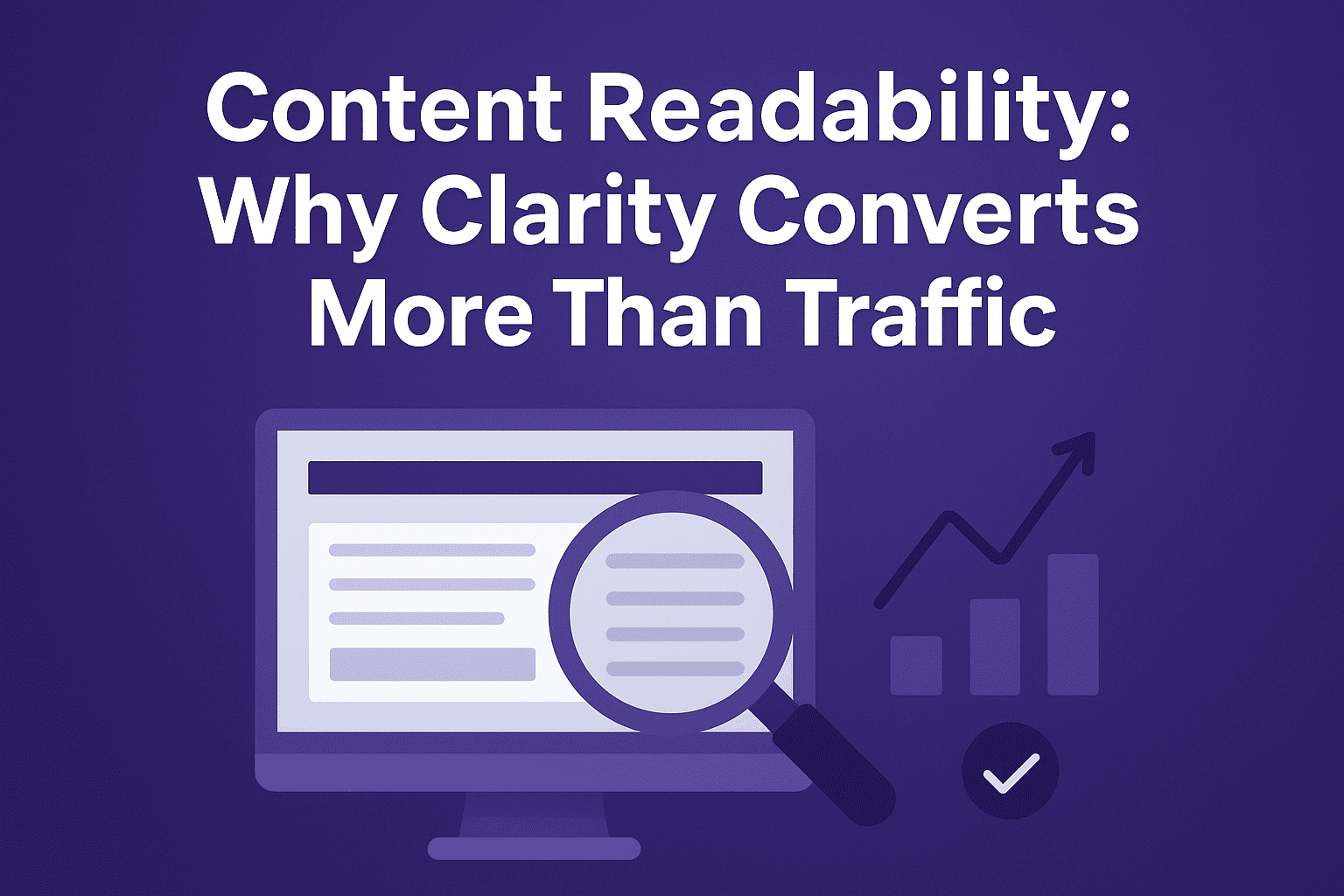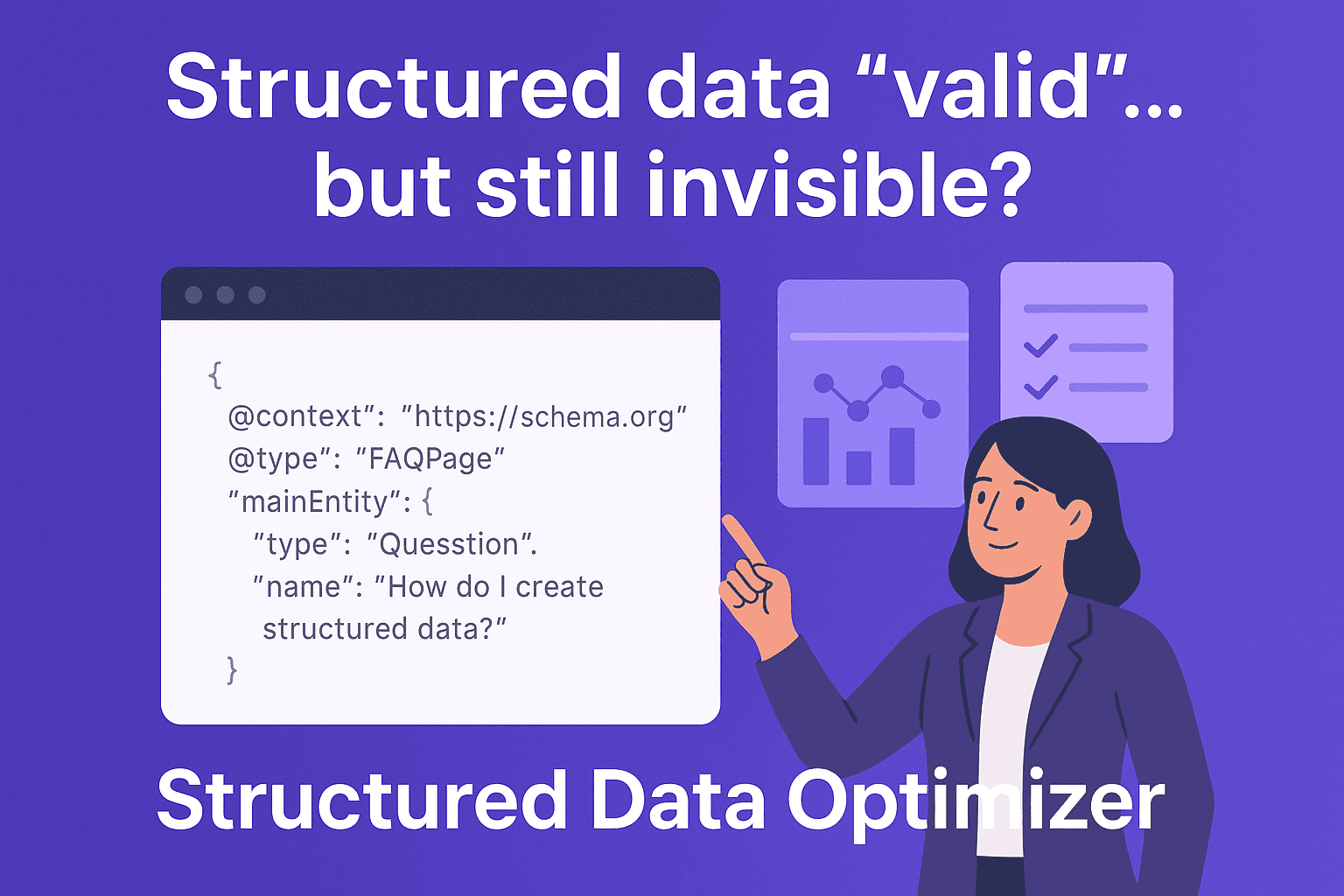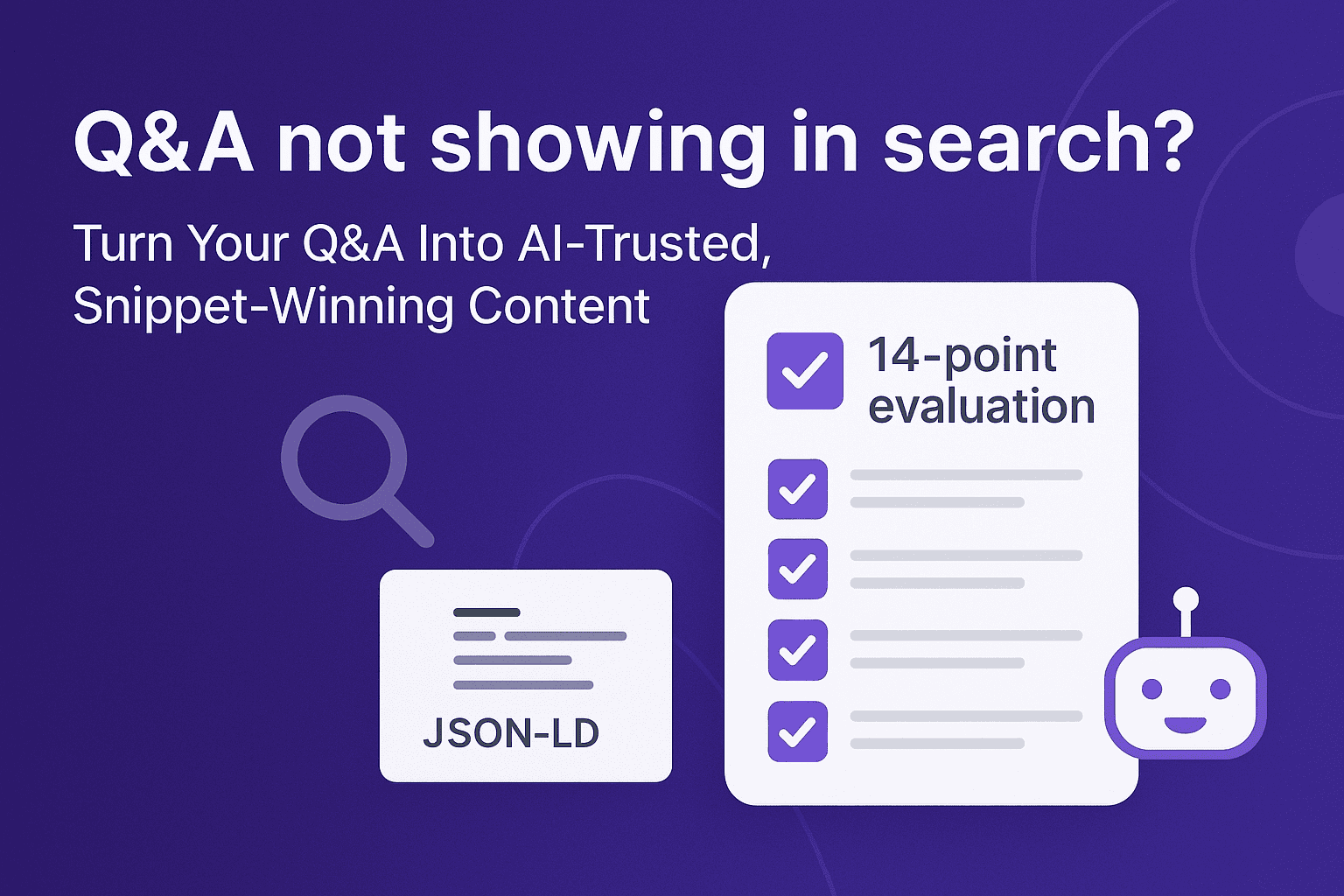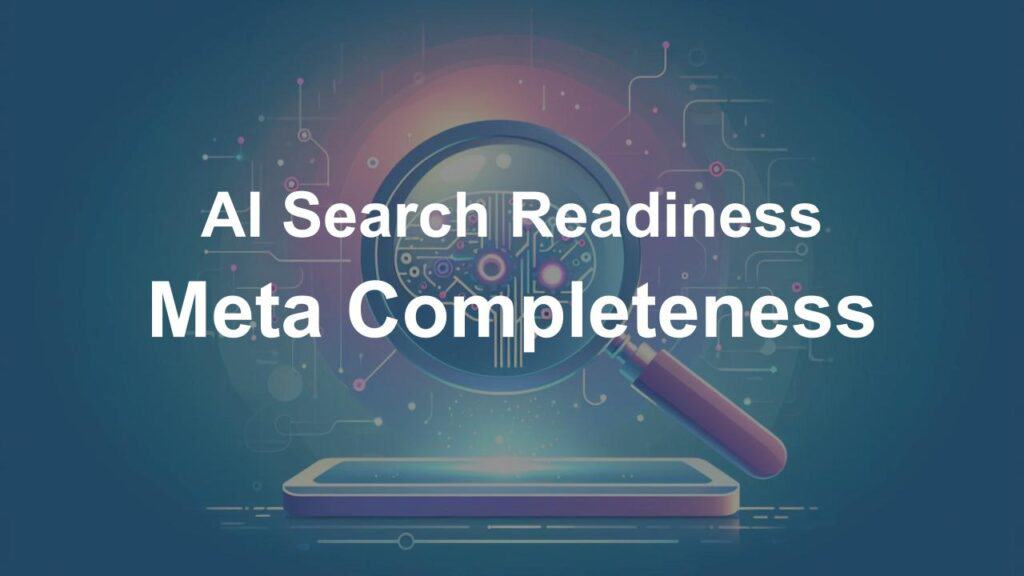
Meta completeness is one of the most overlooked yet critical foundations of SEO and AI visibility. In our earlier post on Content Freshness, we explored how up-to-date information signals relevance to both readers and AI. But freshness alone isn’t enough—without the right supporting signals, even the best content can fail to surface in the right context.
Titles, descriptions, and canonical tags act as the blueprint for how search engines and summarizers interpret your pages. When these elements are missing or poorly optimized, snippets lose accuracy, visibility drops, and authority can be diluted across duplicates. In today’s landscape of AI-driven discovery, complete and precise meta data has become non-negotiable.
Why Meta Tags Matter in AI & SEO
Search engines and AI summarizers often rely directly on meta data to seed context. Your title and description are not just cosmetic—they tell crawlers what a page is about, what it should rank for, and how it should appear in snippets. A missing or poorly written tag can mislead these systems, causing the wrong page to be prioritized or the right one to be overlooked entirely.
For businesses, this isn’t just about rankings. It’s about trust. Inaccurate snippets can create confusion, reduce click-through rates, and dilute authority across your digital presence.
Title Tags: The First Signal
A title tag is the headline of your page in search results and the first indicator of relevance for AI models. To optimize:
- Keep it clear, concise, and under 60 characters.
- Place the primary keyword near the beginning.
- Avoid duplication across multiple pages.
- Write for readers as much as search engines.
When optimized well, your title tag sets the stage for both discovery and accuracy in snippets.
Meta Descriptions: Guiding the Summary
While meta descriptions don’t directly influence rankings, they strongly shape how your content is summarized and perceived. A compelling description can improve click-through rates and give AI summarizers the right context.
Best practices include:
- Keep it within 150–160 characters.
- Summarize the core value of the page.
- Use natural language instead of keyword stuffing.
- Ensure uniqueness across pages.
Think of descriptions as your pitch—they should attract attention while providing context.
Canonical Tags: Consolidating Authority
Duplicate or near-duplicate pages are common in websites with product variations, filters, or syndicated content. Without a canonical tag, search engines may split authority across multiple versions, weakening your overall visibility.
By declaring a canonical URL, you make it clear which page is the primary source. This not only consolidates authority but also prevents the wrong version from showing up in AI-driven snippets.
The Risks of Incomplete Meta Data
Leaving your meta data incomplete—or worse, inconsistent—can create multiple risks:
- Inaccurate snippets: Search engines may auto-generate titles or descriptions that don’t reflect your content.
- Wrong page prioritization: Duplicate or secondary pages might outrank the intended version.
- Diluted authority: Ranking signals spread thin across duplicates instead of strengthening a single page.
In an era where AI-driven systems summarize and prioritize at scale, these risks can cost valuable visibility.
Best Practices for Meta Completeness
To avoid these pitfalls, follow a simple checklist:
- Every page has a unique, keyword-relevant title tag.
- Descriptions are concise, engaging, and accurate.
- Canonical tags are set for duplicate or syndicated content.
- Regular audits are performed to catch gaps or errors.
- Metadata is aligned with both SEO needs and AI summarization patterns.
Completeness is about consistency. Every missing or duplicated tag is an opportunity lost.
Conclusion
Meta completeness ensures that your content isn’t just published but properly understood and surfaced by search engines and AI. Titles, descriptions, and canonical tags are no longer optional details—they’re essential signals that protect accuracy, authority, and discoverability.
To go beyond guesswork, businesses can use tools like Purple Leaf’s AI Readiness tool, which helps assess whether your website is not only fresh but also complete and optimized for AI-driven discovery. Ensuring your metadata is precise and consistent is one of the smartest steps you can take toward future-proofing your digital visibility.
